Theater actor, voice actor, with a passion for music, photography and good food… Carlo Valli is the one who gave voice to over 15 characters in the audio book of the Soeliok trilogy.
The breath of the earth, Beyond the borders and Behind the waterfall are the three titles of Daniele barioglio’s trilogy published by ZoneCreative. The project has the ambition to go far beyond the publishing market by exploring more ambitious avenues such as the world of play and cinema.
This audiobook is an example of how different the approach of the Biellese agency is, which stands out for its cinematic cut by choosing one of the most loved voice actors in the Italian scene and curating a sound system that has nothing to envy to the productions.
What does it mean to read an audiobook? Where do we start from and how can all those characters be interpreted? We asked Carlo Valli during the recordings and his words, who surprised us with his irony.
Enjoy the reading!
What did you think when they asked you to lend the voice of this book?
How have you been contacted?
The beginning of a friendship
Where do you register?
Did you enjoy reading and interpreting this book?
At the cinema there is the dubbing director, in this case who was replacing this role?
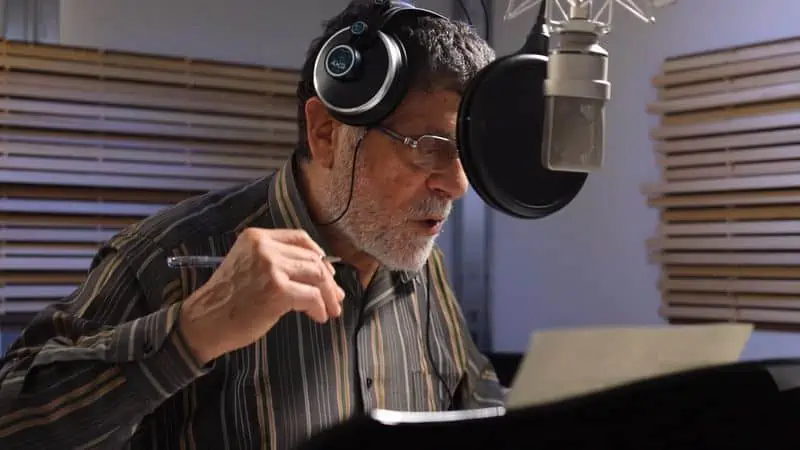
The novel has many characters did you give a different voice to each one?
The protagonists of the book are about twenty, if we add the narrator (which is me) and the minor characters are over thirty different “Voices”.
While reading the audiobook we tried to do everything possible to differentiate them both in intonation and intention, trying to respect age, gender, character, etc.
I did a lot of different voices, but it’s not like I can do all the voices of all the characters … it would be impossible, in short, maybe not even Robin Williams could, even if he was very good.
For the minor characters I tried to get around by proposing an alternative way of acting or a different way of giving a joke.
There is a noble way of speaking, there is a fearful way and that is a character who is perhaps afraid and fearful, there is the bad way of saying things, the good, cordial and loving way.
In short, giving voice to an audiobook and having to play many characters is fun and it’s also a great challenge.
One, none, one hundred thousand
What is the challenge in voicing many different characters?
In the dubbing you give your voice to an actor, here instead you are the actor who plays all the roles, don't you think?
Which character in the book did you identify with the most?
Eldur’s character is what I like best because he’s the wise old man and I’m old enough so that’s okay, I get into character. He is the one who knows how to do it in every situation, knows the advice to give, knows the things that should and should not be done.
We make him speak a little with the little voice and then he is a character who speaks in verse, in rhyme. He only speaks this way. Here, I’ll let you hear something like this:
“The nacelle seems stable, the explosion is contained perhaps Kalmot exaggerated, but he was not wrong on that the rarefied soeliok in the high altitude range reduced the pressure that the flare emanated. “
Here … every now and then you have to be careful otherwise he looks like a Venetian drunk.
If you want to know the other Soeliok characters, click here
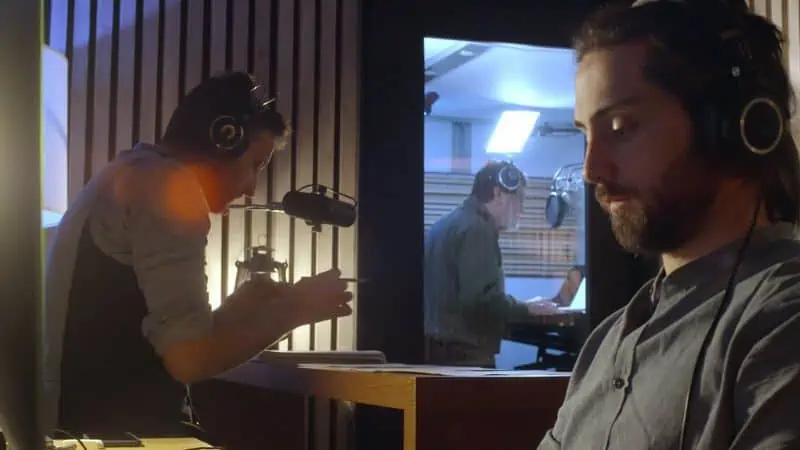
We were impressed by your ability to anticipate the character and the correct intention in the dialogues. How do you do?
You never run out of breath even in the longest sentences, how do you have so much air at your disposal?
As for the breath of course, you should not get to the end of the sentence breathless, but this is a normal thing. You learn either by taking a good breath at the beginning or by taking a breath in certain precise points, even very short ones, as musicians do when they play the wind instruments, which between one note and the other are able to take a breath, not they do it all in one breath… this is something you learn by dubbing and acting. It’s a normal thing.
It is something that concerns and also affects style! By the way, I have an anecdote that I tell occasionally: once I saw Gassman perform in one of his shows in which he recited poems at the Quirino in Rome. He had an incredible ribcage. He could calmly say a dozen lines without taking a breath. And at one point he said a lot of lines in one breath and eventually he came without and took a breath. Taking a breath was as if he had said another verse. The breath was another verse, an extra hendecasyllable. So it’s also about style and of course it’s also about not dying at the end of the round.
You have voiced many famous actors and characters, did you find any similarities with any of Soeliok's characters?
Raise the half-berth flag!
Is there more acting than dubbing or reading an audio book?
How important is being an actor to be a voice actor?
How long have you been doing this job?
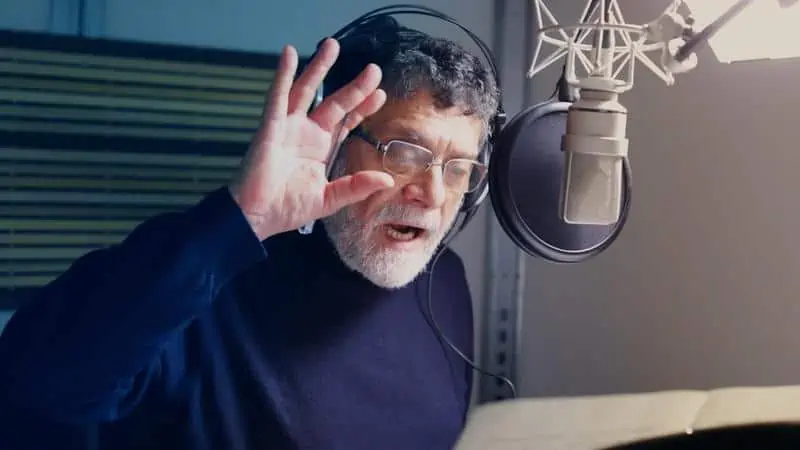
How attached are you to the theater?
The Italian voice of Robin Williams
How much has dubbing Robin Williams affected your career?
For Italy Robin Williams still lives in your voice, is that a good feeling?
What are you working on right now?
Is there a lot of competition in your work?
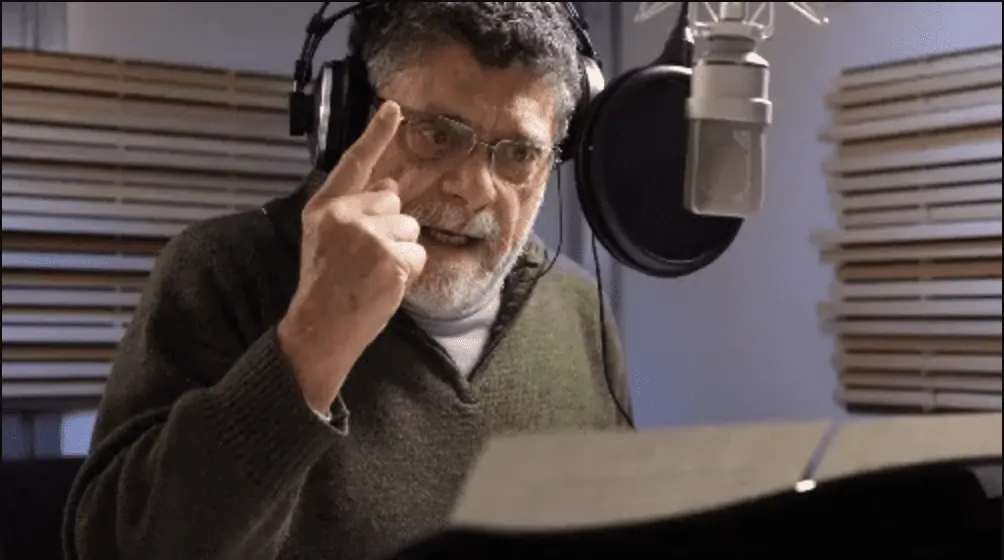
Do you still get tense before an important performance?
How does the relationship between voice actor and dubbing director work?
The dubbing director is like the director in the theater. He knows the film, he should know the voices of the dubbing, those that exist on the market must distribute them knowing the film, because most of the time he is also an adapter, so he knows it very well, he has adapted it sentence by sentence, going back to several times and he has to explain to the actors who will come to the room and who know nothing, why no one tells them anything, what they have to do or what kind of character they will have to play, what happened before and what will happen next. In the dubbing it is quite evident, there is not much need to talk, because the character is there, just see him and you do as he does. Often there is also the owner of the film who makes his preferences and says: “I would prefer to put this actor instead of this other for the character”. We talk a little and come to a compromise. An actor is called to take a shift, arrives in the room and sees in that moment what he has to do. Once upon a time it happened! For example, to dub “Good Morning, Vietnam”, which was the first film in which I dubbed Robin Williams, I was asked because everyone who had won the audition to make the film, had been gathered in a room and shown the original movie, before starting to dub it. And that was useful and it was also beautiful. Then that was such an important and difficult film that it was useful to be able to see it earlier. Now it doesn’t happen anymore. There is no more time, everything has to be done quickly; good and cheap!
Don't you think audiobooks tend to accommodate a wider age range than a book to read?
A novel for children of all ages
They say that Soeliok has a profound interpretation that makes it suitable for all ages. Do you agree?
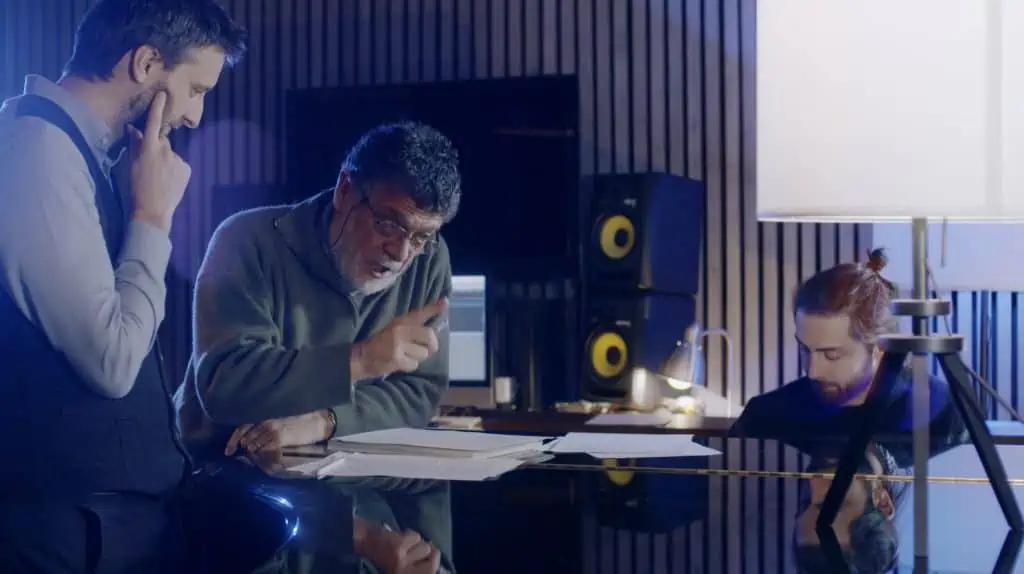
Soeliok will also be entirely set to music, what do you think?
The guys at ZoneCreative are doing an amazing job on the music. I know they intend to compose the soundtrack like in the cinema… they made me listen to the first drafts and I was really impressed.
It seems very interesting to me, also because I don’t think it has ever been done, at least not with this quality.
And in any case it is an experiment, a laudable attempt! There is certainly a lot of commitment behind it. I met Jacopo, one of the two composers and I saw the passion he put into thinking about the first themes, taking advantage of my voice in the rehearsals… The music in these things is fundamental to emphasize the emotions.
It is certainly a long, important and tiring job, but I believe it can be successful.
The audiobook has some similarities with the radio because you can put it on, listen to it all together in the family as it was once around the table with maybe a little chestnuts and a glass of wine.
Find out more about the narrating voice, sound design and soundtrack.
Read also & Sound design: telling a story without using words
